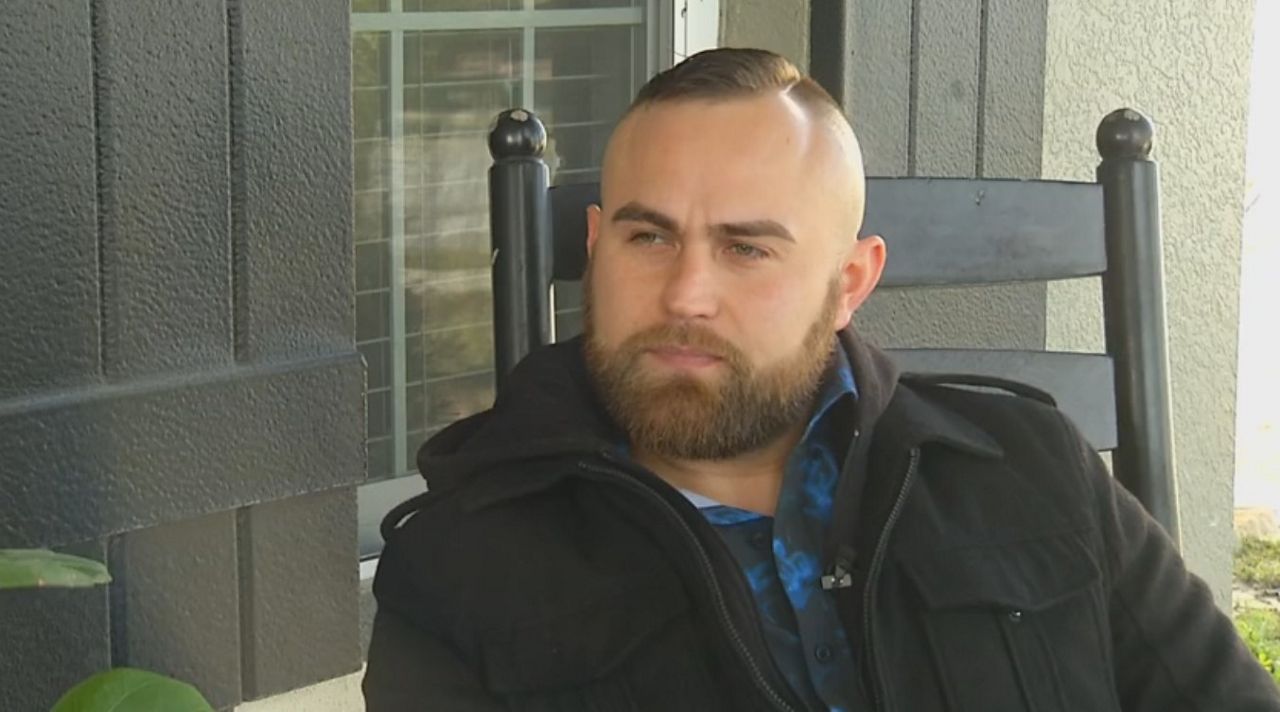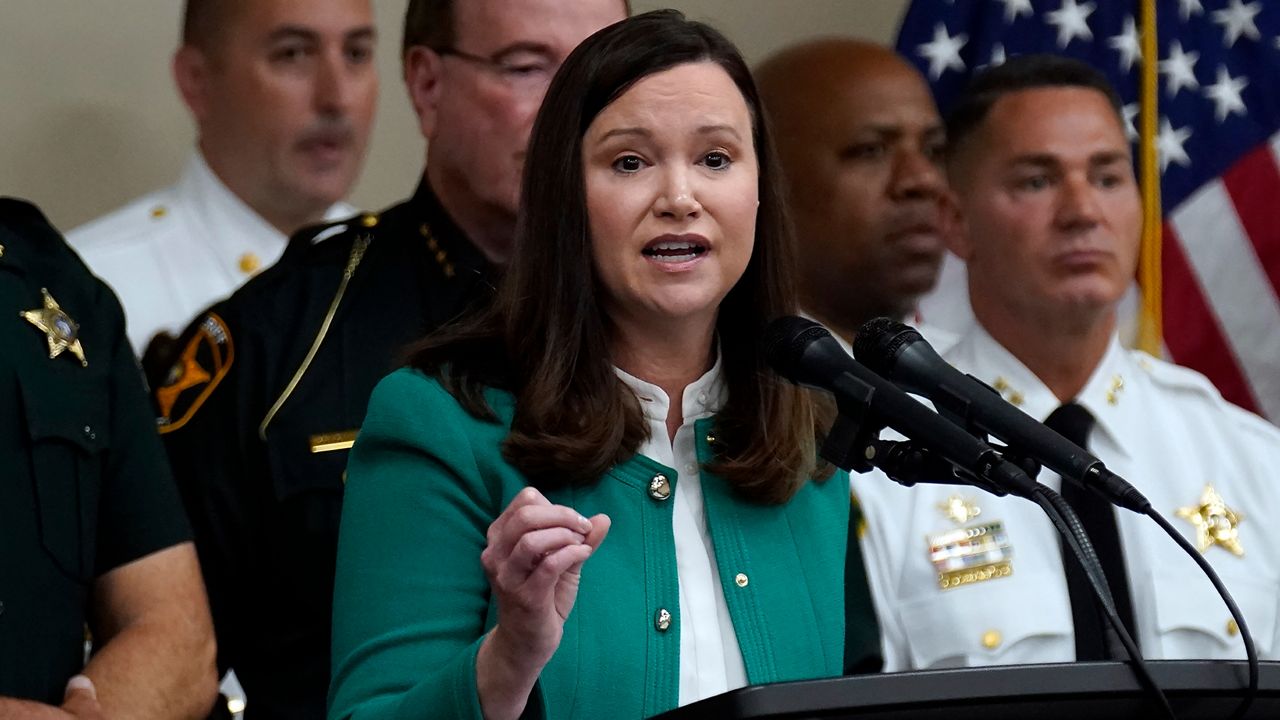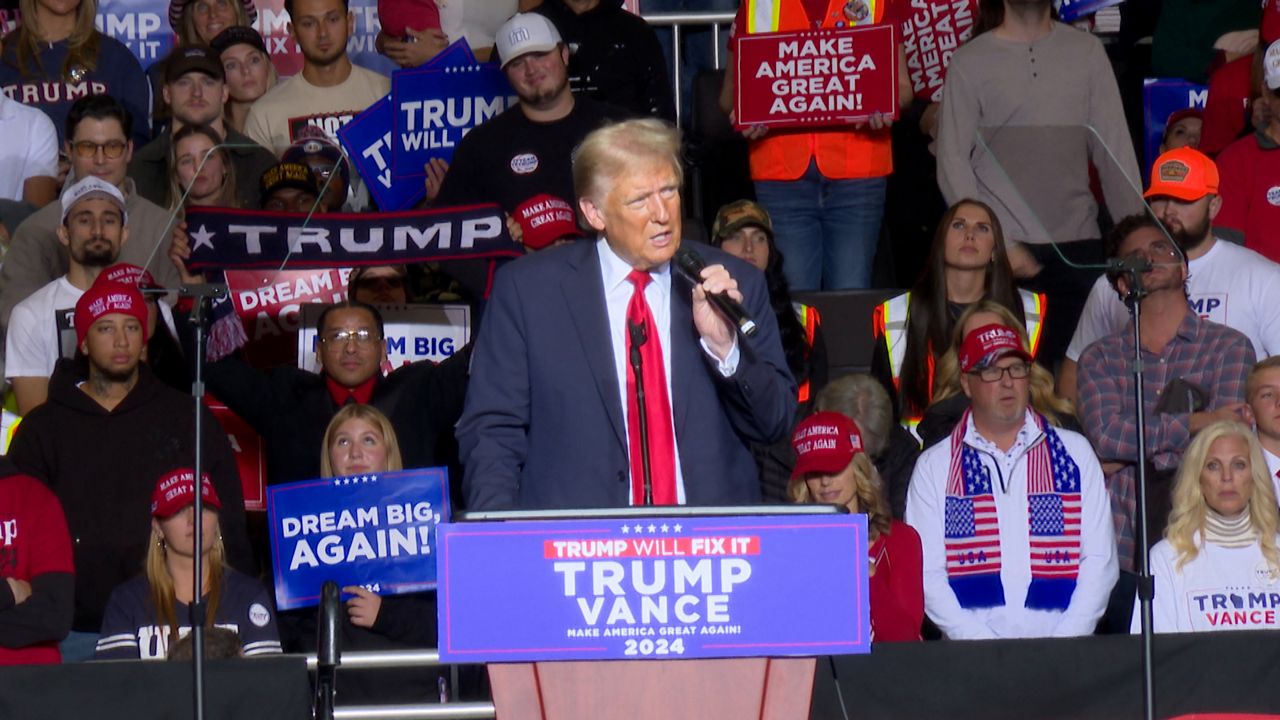CINCINNATI — All nine seats on Cincinnati City Council are up for election this November and there’s no shortage of contenders interested in landing a seat on the dais.
There’s a near-record 35 names on the ballot.
What You Need To Know
- There are 35 people vying for one of nine open seats on Cincinnati City Council
- There's only one elected member of council up for re-election; four other members who were appointed to their position are in the running as well
- Name recognition can be a major factor in a race that's somehow decided by a few hundred votes
- Hamilton County uses a nonpartisan ballot so a candidate's political party isn't listed
Alana Tucker is senior director of government affairs with Government Strategies Group. She led Amy Murray’s successful city council campaign in 2013. There were 20 candidates in that field that year — and they thought that was a lot back then.
Tucker believes a variety of local and national movements and events over the past few years have led to increased interest in local races.
Everything from perceptions of corruption at City Hall to the COVID-19 pandemic to "polarizing partisan politics spreading across the nation, largely due to what's coming out of (Washington), D.C."
“It’s all led to more civic engagement and a desire to change the political landscape,” she said. “It’s not just Cincinnati council races, but also school board races and municipal races. People are jumping in and people that have not previously been politically engaged, are now getting engaged."
City council is Cincinnati's legislative body. They’re responsible for enacting laws, imposing taxes, making appropriations, establishing policy and hiring some prominent city officials. One of their biggest tasks is passing the city's $1 billion-plus annual budget.
The council also plays a major role in the development of neighborhoods and adopts zoning ordinances, as well.
While there are a handful of familiar names on the ballot, only one elected council member is seeking re-election — Greg Landsman. The Democrat won election for the first time in 2017.
No other elected member of city council is eligible to run.
“This election is unique in every sense of the word. We have only one directly elected incumbent, who's running for re-election and a lot of interesting first-time candidates in the field,” said Kevin Tighe, a local political consultant and founding member of Good Government Group.
Current members of city council
David Mann is running against Aftab Pureval to replace John Cranley as mayor. Cranley, who held the position for the maximum of two terms, is running for governor.
Chris Seelbach, Christopher Smitherman and Wendell Young are all term-limited as well.
None of the other four incumbent members was elected. They made their way to council chambers by way of an appointment of some sort.
Betsy Sundermann replaced Murray, a fellow Republican, in March 2020 after Murray stepped down to take a position in the Trump Administration.
The other three all made their way to council due to scandals.
Jan-Michele Lemon Kearney was chosen by successor designee on council in March 2020 to replace her fellow Democrat, Tamaya Dennard.
Dennard resigned after being arrested on corruption charges. Dennard later pleaded guilty and is serving 18 months at a federal prison in West Virginia for accepting $15,000 in exchange for a favorable vote on a development project.
Two other current city council members, both Republicans, were appointed by a judge to seats in 2020. Each also replaced an elected member of council who accepted suspensions while awaiting trial on federal corruption charges.
Steve Goodin was appointed in November 2020 to serve as an interim council member to replace Jeff Pastor, a Republican. Liz Keating was appointed as an interim member in December 2020 to fill the seat of P.G. Sittenfeld. That move faced some criticism because a GOP judge selected a fellow Republican to fill the seat, although Sittenfeld is a Democrat.
Both Sittenfeld and Pastor are currently working their way through the legal process.
How the process works
Cincinnati has an at-large council representation system, which means voters from across the city have a chance to vote for each of the nine seats.
The top nine vote-getters will end up on city council.
Although voters may choose up to nine candidates, they don't have to —they can stop at just one or any number lower than nine, if they prefer.
Deciding the number of people to vote for is an important consideration. Voting a full slate of nine can mean candidates that voters may not strongly support, and only somewhat like, can slip into office.
In a race that usually only has about a 30% to 35% voter turnout, a handful of votes can make a difference.
For example, in 2017, the last council election, just 317 votes separated Jeff Pastor, a conservative-leaning Republican who finished ninth, from Michelle Dillingham, a progressive Democrat. Dillingham is running again this year.
Cincinnati has four different parties, by the way — the most common, Democrat and Republican, but also Green and Charter, a Cincinnati-specific, independent political organization that is dedicated to what it calls “good government.”
Each of those parties, as well as other organizations, have made endorsements for this year's race. And most will be handing out fliers with those candidates on the ballot.
Voters are allowed to bring in those materials, or their own information, to the voting booth. And Tucker said the political parties know that. "If you are an endorsed candidate, you are automatically going to rise to the top and one of the reasons is that the polling location support you're going to get from your party," Tucker said.
"You are going to see coverage, people are going to be standing there with slate cards when you're walking into your polling locations," she added. "If you're an individual candidate that has not been endorsed by one of those parties, you're going to have to try to cover all of those polling locations with your literature."
Name recognition
None of the four council appointees got picked by Cincinnati voters. But they likely have the advantage over other candidates given the platform that serving in elected office entails.
They've had opportunities to make community connections, establish rapport with members of their respective parties and learned a little bit about how the sausage gets made at City Hall. They've also voted on key legislation, showed up at community events and had their names mentioned in the media talking about key issues.
Tucker said getting earned media, such as news stories, is key.
"Your incumbents who are running to hold their seats have the best chance, I'd say, because they're at City Hall every day, they're making legislation making decisions that are attracting media attention," she said.
It's no surprise that name recognition can matter a lot in a Cincinnati election. That is due, in part, to the fact that it’s a “blind” or nonpartisan ballot, meaning voters won’t see a candidate's political party.
It's commonly thought that a candidate's odds of getting elected improve on their second or third try, even if they don't win a seat on their first attempt. Voters will see several of those on this year's ballot.
Tighe cited current Council member Young and former Council member Chris Monzel as examples of candidates who had run to run multiple times before getting elected. After multiple failed bids for council, Young was appointed to a seat in 2010 to replace Laketa Cole. He was then elected the following year.
"If someone's able to recognize your name, and have a positive emotion associated with it, then you're golden," he said. "Running for office several times and getting your name out there among the electorate is advantageous for future campaigns. It's helpful with earning votes but it's also helpful in the building of a campaign."
Tighe went on to say that could be even more of a factor now that Cincinnati has reverted to two-year terms for city council.
There are also two former council members, Kevin Flynn and Jim Tarbell, who are running again this year after taking a few years away from Plum Street.
People who have held other offices or have public-facing jobs or pastimes that earn them on the news have a better shot as well.
There's a popular theory that having a common last name like "Smith" or "Johnson" can actually help a candidate get a few votes because their name sounds familiar.
That's not necessarily true, at least there's no way to prove it. And Tighe actually thinks the opposite is more likely anyhow.
"Aftab Pureval is a great example. He's someone with a unique name for Cincinnati, Ohio; he's not a 'Bill Smith.' But in his campaign for Clerk of Courts, he was able to build a positive brand around his unique name and now it resonates with voters."
Voting open in Ohio
Early voting is currently underway in Ohio. Voters can request an absentee ballot or vote in person at the Hamilton County Board of Elections.
Election Day is Tuesday, Nov. 2.
You can find more information about the election on the BOE website. That includes a sample ballot with the full list of candidates.






_(1))


